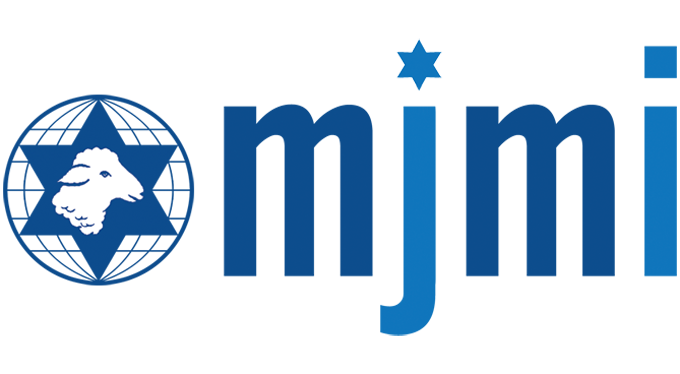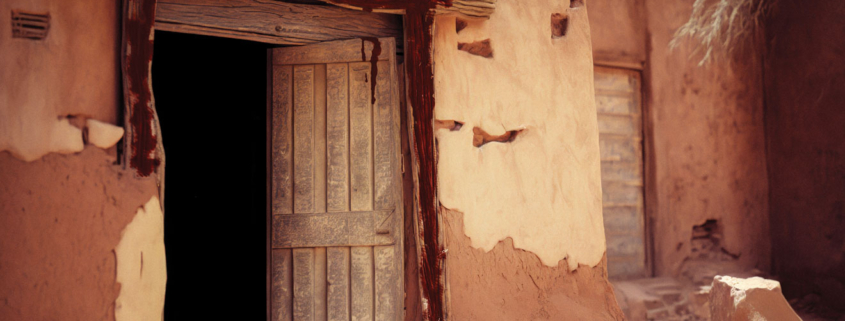Two Signs, One Doorpost
Is the blood of the Lamb of God, painted on the doorposts of our hearts, really enough for us to be made righteous in God’s eyes? Or do we possibly need something more? Some followers of Yeshua today believe that righteousness can only be obtained if we also zealously follow the commands of Torah. But could this really be true? Perhaps we can settle this question by considering two passages from the Torah itself, each visually and practically depicting a different doorpost of the houses of Israel. Examining these two doorposts reveals that both the blood and the commands are important, but they have different functions… and only one of them alone can bring salvation.
On the eve of the inaugural Passover, God Himself established the first of these doorposts. As Israel suffered at the hands of their Egyptian oppressors, God vowed to free them through one final act of devastating judgment—by killing every firstborn in Egypt. This, however, created a new problem: since the people of Israel still lived in Egypt, their own firstborn were in danger of being destroyed. Knowing that His people needed a source of salvation from the coming judgment, God provided a singular solution. He commanded Israel to slaughter innocent lambs and apply their blood to the doorposts of their homes. While God’s plague brought death to every home in Egypt, the houses marked by the sign—the doorposts covered in the blood of the lambs—were passed over, bringing salvation from death, and also freeing them from slavery to follow and serve the living God.
The blood on the Passover doorpost stands as a sign for us as well—that when we needed a source of salvation, God provided the blood of a Lamb. Since we, like Israel, suffered under the slavery of sin and death, God sent our Pesach Yeshua, the perfect Lamb of God, to take away our sins and the judgment they bring. Just as the blood of the Passover lambs was applied to Israel’s doorposts, so Yeshua’s blood, applied to our hearts, saves us from death and frees us to serve God in righteousness.
Once Israel was saved through the blood of the Passover doorpost, they were free to fulfill their purpose of serving God. In this task, they would be aided by a second doorpost. Israel’s deliverer and leader, Moses, taught them how to follow Adonai by instructing them with the commands—God’s rules for His people to obey. As the time of Moses’ death drew near, he left them with some of the Torah’s most foundational remarks:
“Hear, O Israel: The Lord our God, the Lord is one. You shall love the Lord your God with all your heart…. And these words that I command you today shall be on your heart…. You shall write them on the doorposts [m’zuzot] of your house and on your gates.” (Deu. 6:4-9, esv)
Many Jews over the centuries have interpreted Moses’ words literally, by affixing a small box containing commands of Torah (called a “mezuzah”) on their doorpost. But just as the blood on the Passover doorpost points to Yeshua’s blood on our hearts, so Moses was actually using the doorpost as imagery to show how the commands should be on our hearts. If Israel loved the God who saved them from Egypt, then they would write His commands on their hearts continually, as permanent as words on a doorpost. And like a doorpost, these commands would be present whenever Israel came or went anywhere to do anything—a perpetual guide indicating the way that God wants His people to follow.
So the doorpost of commands also stands as a sign—that when we love God and seek Him, He instructs us with His commands. But unlike the blood, the commands are simply a guide. They do not save or make anyone righteous. Only when we have been declared guiltless, righteous, and free in the blood of Messiah will our love for Him provoke us to follow His way. After all, if Israel had sought salvation that first Passover by writing the commands on their doorpost, it would have done nothing to save them. God provided the blood, and only the blood, to spare them from judgment and save their lives. The doorpost of commands, then, is only useful to those who are already free to follow. Just as Israel had no use for the Torah until after they were saved from Egypt to be God’s people, so the commands will be ineffective and useless in helping us walk righteously unless Messiah has already freed us from the slavery of sin and death, so that we can follow Him unhindered.
Did this post bless you?
♥
As followers of Messiah, we have two doorposts before us: one of blood and one of commands. If we turn to the doorpost of commands for righteousness and salvation, we will find nothing. But when we seek salvation by applying Yeshua’s blood alone to the doorposts of our hearts, we will also be made righteous and free to serve Him. He will write His commands on the doorposts of our hearts, so that the blood and the commands will together become two signs on one doorpost—a heart saved by the blood and devoted to His words.
So this Passover, remember that nothing but Yeshua’s sacrifice alone can bring salvation… and if we love Him with all our heart, then through His blood we will also find the freedom to follow.
What do you think? Share your thoughts in the comments below!






Leave a Reply
Want to join the discussion?Feel free to contribute!